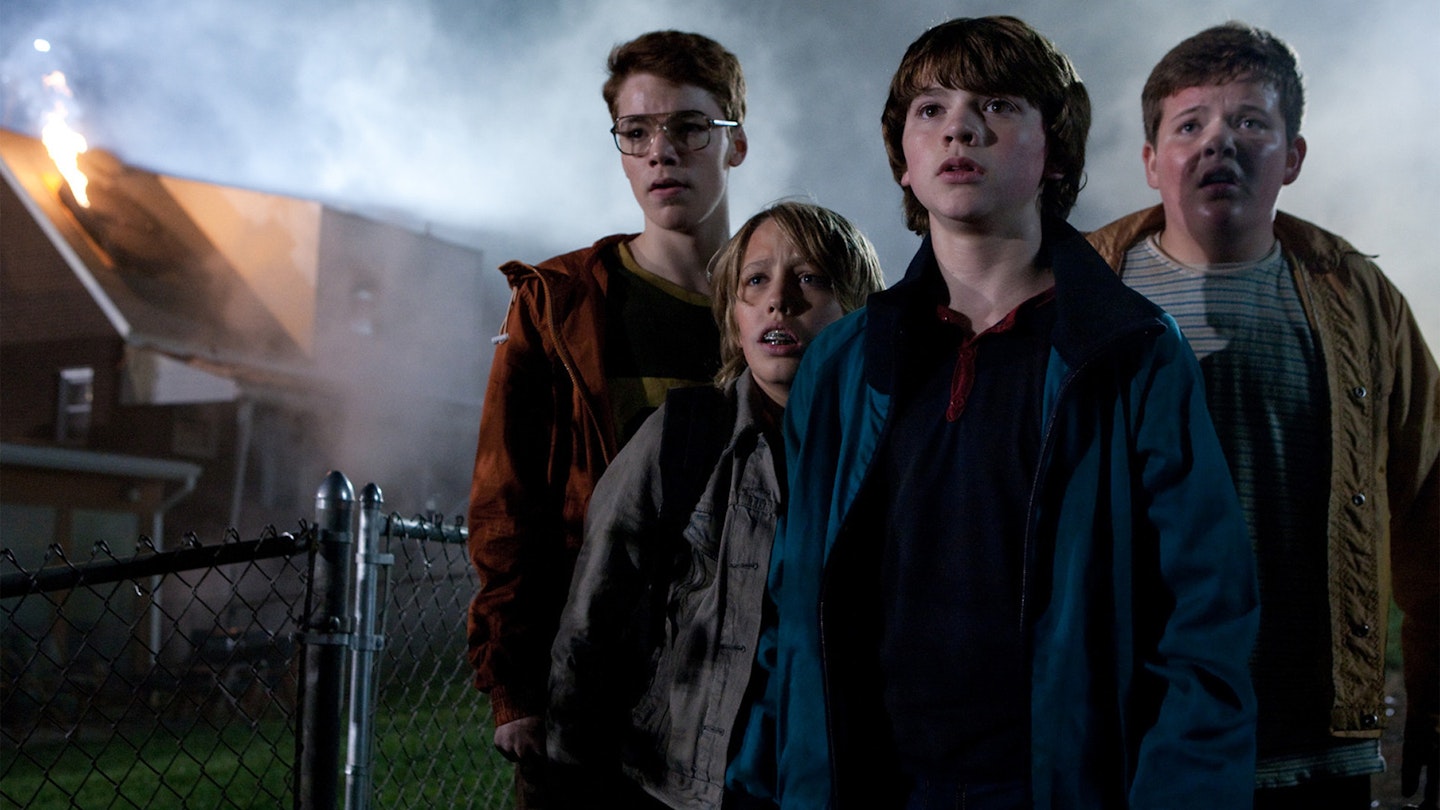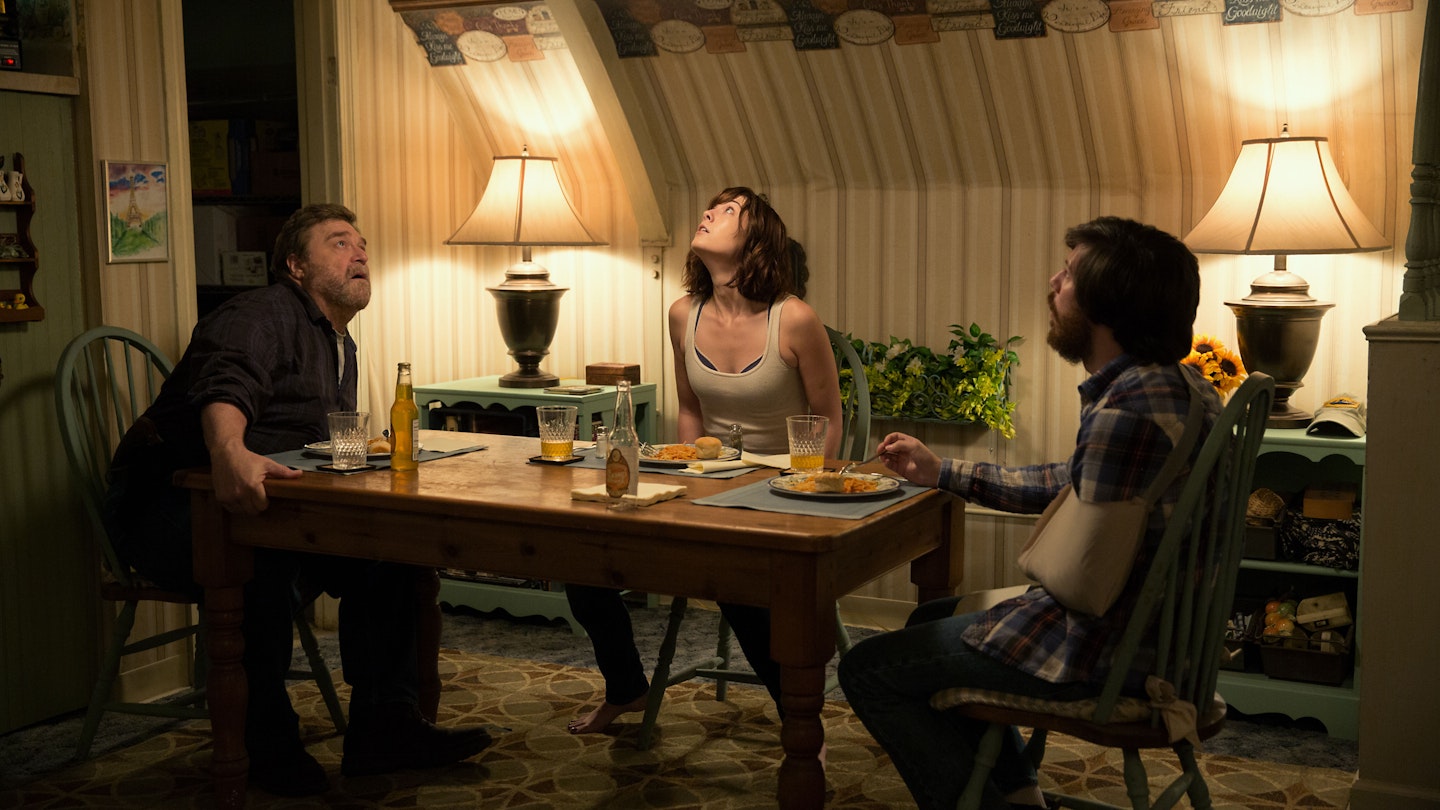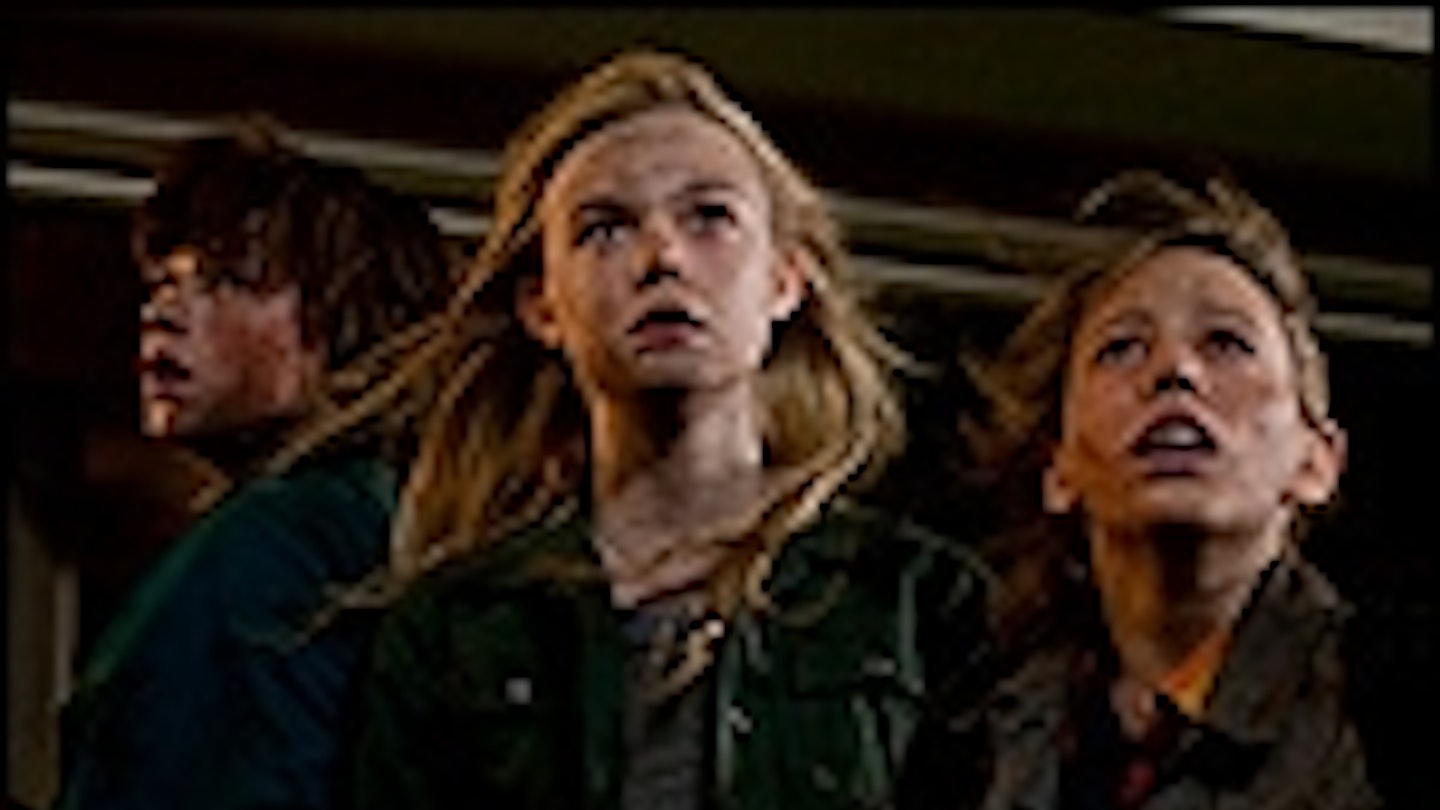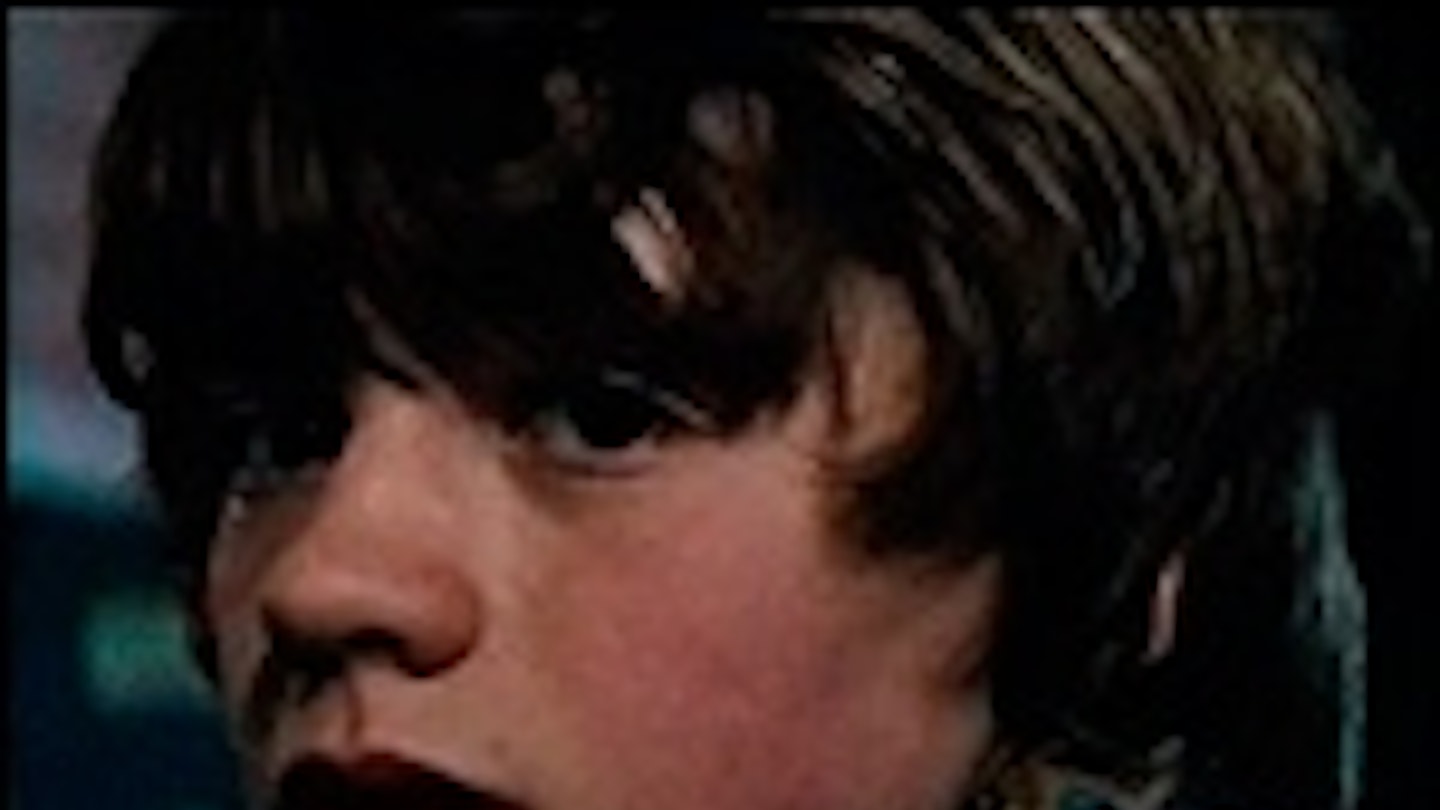We need to talk about Steven. You might consider it grossly unfair to compare any director to one of the medium’s greatest exponents, but J. J. Abrams is asking for it. Not only has he persuaded Steven Spielberg to serve as producer on his latest film — encouragingly neither sequel, prequel, nor attempt to deodorise a stale franchise — but the very film the tenderfoot filmmaker has written and directed is a fan letter to the spirit of early Spielberg. The kind of cinematic telepathy, touching hearts and minds, that gave us Jaws, Close Encounters and E. T.. This is less covering The Beatles than growing a mop top, strapping on a Hofner bass and channelling an irresistibly catchy synthesis of R&B, rock ’n’ roll and Liverpudlian charisma.
Over the next 112 minutes, a motherless boy and his staunch gang of misshapen buddies (a Bash Street arrangement of cute, thin, fat, clever and pyromaniac) will face the great questions of life: how to talk to girls, how to get production values on your DIY zombie flick, and what to do when a despondent alien is deposited, care of an elaborate derailment, in your backyard. As set in 1979, an age crystallised as Spielberg’s imaginary playground. Fathers will struggle to fathom their mooncalf offspring, while confused townsfolk are shipped off in school buses amid a faceless military lockdown. There’s even a POV shot from the creature’s perspective, parting bushes to gaze upon the small-town setting, its jewelled streetlights flaring fetchingly in the lens. Prosecution rests.
To cut the film a significant break — and it’s a strong movie — if you’re going to homage, why not follow in the sneaker-steps of the master? A faithfully rearticulated sense of wonder coats Super 8 like varnish — an old-fashioned need to strike emotional chords over the modern urge to plunge headlong into excitement at all costs. A personal blockbuster in honour of the greatest of all personal blockbustermakers.
So we also need to talk about J. J.. Super 8 is to a degree autobiographical (about the whole alien visitation thing, he remains tight-lipped). He was that junior filmmaker with a chunky Super 8, brought up on Spielberg and Lucas, just as you know these kids have gobbled up Star Wars and Close Encounters (and snuck into a few Romeros). He transplants his New Jersey youth to a blue-collar Ohio town named Lillian significantly on the down (a chime of modern concerns), where Joe Lamb (Joel Courtney) still struggles with the death of his adoring mother in a mill accident. His father, the town’s stoic deputy (Kyle Chandler), is faring worse, flinching from his son’s grief. A familiar refrain for anyone who caught Lost and Star Trek (or E. T.) — the legacy of the absentee parent.
Joel finds solace spending the summer goofing with his schlubby comrades. Led by bumptious, trumpet-voiced ‘director’, Charles (Riley Griffiths), they are intent on making their own film within the film: a nutty, lovable zombie skit shot on the eponymous camera, with homemade make-up care of Jack’s obsession with painting figurines and movie-model kits. His room is a junkyard of ’70s geek clutter, but these are geeks from a pre-internet age, happy to draw deep on fresh air, unsure growing up offers them a whole lot. The pressure, laid down by Spielberg’s unyielding template, was to find regular boys, gummy with youth, but enlivened by the camera.
Thankfully, the kids are more than alright. They’re fabulous: yearningly fresh-faced and infantile, effortlessly colliding with the Brownian motion of a boyhood of in-jokes, flash sulks and bike-rides through the balmy sunlight of possibility (a mood as much redolent of Rob Reiner’s Stand By Me as Spielberg). En masse, they stand in tremulous awe at Elle Fanning’s Alice (spookily reminiscent of Erika Eleniak in E. T.), who has agreed to co-star in their endeavours, revealing a startling ability to, like, act. She’s also a precious commodity for Abrams: the budding romance between Joe and Alice gives the film its heartbeat. Both are caught in the slipstream of wounded fathers, Joel’s tragedy movingly intertwined with Alice’s fragmenting family.
Is it significant that Super 8 is a film without mothers? Nothing here carries the emotional wallop of E. T.’s Dee Wallace finding a literal alien in her home, her reaction overwhelmingly human — to wrench her son away from the unknown. To protect. We are yanked beyond the bounds of science-fiction by the force of maternal instinct. Super 8 never relinquishes its movieness. Where Spielberg mingled the extraordinary with a verifiable suburbia, Abrams works at one remove, locating the extraordinary in Spielbergia. The magic comes lovingly pre-packaged. Idealised. We obediently bask in its glow, but nothing startles us.
As Abrams has explained, these boys (and girl) only teeter on the precipice of teenhood, yet to make the plunge. Awakening to the female of the species is still chastely above board; sex only sensed like an alien presence. Of all the monsters arriving in boxcars, puberty could be the most terrifying of all. For now, sneaking off on location to Lillian’s ramshackle station, the boys (and girl) will witness a tumultuous, CG-exaggerated train crash, their toppled camera catching sight of an escaping bogeyman.
The director has also been honest about how the coming-of-age and coming-of-alien storylines were separate ideas, later melded together. And the film never manages to shake its bi-part origins. Alongside the escapades of the boys (and girl), Abrams drip-feeds his weirdness: a noticeboard teeming with news of lost dogs, strange reflections in pools of petroleum. Until the very end, we are granted no greater glimpse of the alien than something malevolent lurking in the bushes, picking off irrelevant yokels one by one. It might as well be smoke. Or an ill-tempered Great White.
Too soon the drip feed turns into a cascade and science-fiction floods both town and film, washing away the mystery and much of the charm. The military, led by a granite-faced Noah Emmerich, aren’t fooling anybody. And with the Earth-shattering revelation that aliens are not only real but intent on ridding the neighbourhood of both its population and electrical goods, relationship issues, or finishing your zombie epic, surely become secondary concerns.
Worse than the creature, convention rears its ugly head. The boys (and girl) are required to clatter about like The Goonies, Abrams slipping gears into B-movie short-cuts. And while intriguingly Tolkieny in close-up, the alien turns out a confusing concept: evil yet wronged, beastly yet advanced, enigmatic yet possessed of a convenient telepathy to circumvent narrative snarl-ups. We feel nothing for it, neither fear nor compassion — a visitor from Planet MacGuffin.
Moreover, the fact it has escaped from government skulduggery (like Paul pruned of his Earthly drollery) is a dead end. There is nothing the kids discover that the scowling authorities are not already in on. Apart from a sketchy rescue mission, they are bystanders in a plot that has crash-landed from a different movie. No matter how much CG-alien action we get for our money, we miss just watching these kids grow up. In this, at least, Abrams is true to his mentor. The humans are the most awesome special effect.






